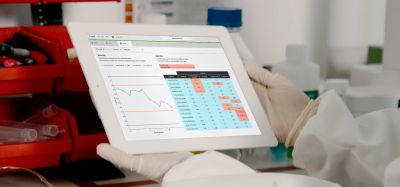ABPI publishes new roadmap to aid in ATMP development
Posted: 20 December 2021 | Hannah Balfour (European Pharmaceutical Review) | No comments yet
The roadmap clarifies the processes to develop advanced therapy medicinal products (ATMPs), providing guidance on key considerations.


The Association of the British Pharmaceutical Industry (ABPI) and the Accelerated Access Collaborative (AAC) have launched a new roadmap to clarify the processes companies have to go through to get advanced therapy medicinal products (ATMPs) to market.
ATMPs, also known as cell and gene therapies, have the potential to save and transform the lives of some of the sickest patients and potentially cure them. However, the processes involved in getting them to market can be complex and difficult to navigate.
Recognising their potential, the UK Government have established initiatives to make Britain a world leader in the sector; however, ABPI stated that more can be done to attract innovators to research, develop, manufacture and launch their products in the UK.
“Our roadmap helps to demystify the often-complex processes that innovators face and is an essential tool for those launching products in the UK,” explained Dr Paul Catchpole, Value and Access Policy Director at the ABPI. It aims to clarify the processes involved with developing ATMPs and getting approval, as well as how to engage with the system.
It highlights four key considerations when launching a product:
- Engage early with all parts of the healthcare system including the MHRA, NICE and NHS England – from early product development and regulatory stages right through to service planning and commissioning to make sure the system is ready.
- Keep the patient in mind throughout and talk to patient groups to keep them at the heart of development. Also, consider patient population diversity.
- Take advantage of all available guidance and support including what’s on offer from the NHS and other parts of the system partners who can help you understand the landscape and how to meet the specific requirements of regulators, commissioners, and providers.
- Aim for simplicity wherever possible and look for where things can be standardised. The health service already delivers ATMPs to patients, and companies should consider what they can do to make them fit existing systems and processes to speed up time to market and to patients.
Matt Newman, Deputy Director, AAC, added: “This is one aspect of a broader programme of work to ensure that the NHS is ready to adopt the latest ATMPs, building on the successful introduction of treatments like CAR-T [chimeric antigen receptor T-cell therapy].
“Thanks to the new roadmap, ATMP developers have access to a rich source of information, in one place, set out in an accessible format. This first of kind resource will make the end-to-end pathway for ATMPs easier for developers to navigate, increase NHS adoption and make the UK an attractive place to launch ATMPs. Ultimately, the new ATMP Roadmap will support innovators in getting ATMPs to NHS patients faster.”
To download the roadmap, click here.
Related topics
Biologics, Clinical Trials, Drug Development, Industry Insight, Regulation & Legislation, Research & Development (R&D), Therapeutics
Related organisations
NHS England, The Accelerated Access Collaborative (AAC), The Association of the British Pharmaceutical Industry (ABPI), UK Medicine and Healthcare products Regulatory Agency (MHRA), UK National Institute for Health and Care Excellence (NICE)









